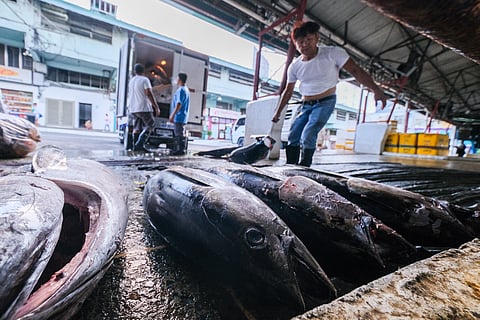
- NEWS
- the EDIT
- COMMENTARY
- BUSINESS
- LIFE
- SHOW
- ACTION
- GLOBAL GOALS
- SNAPS
- DYARYO TIRADA
- MORE

The Bureau of Fisheries and Aquatic Resources (BFAR) expressed support for the Department of Agriculture’s move to blacklist smugglers, including fish products as it said this not only puts the livelihood of local fishermen at risk but is also harmful to public safety.
"BFAR's policy is also to fight these smuggling activities because they really result in the disruption of our pricing in the market,” BFAR spokesperson Nazario Briguera said Thursday in a media forum in Quezon City.
According to him, smuggled fish products not only affect the local market but also pose threats to consumers as they fail to undergo regular compliance, such as phytosanitary analysis, to ensure their safety for human consumption.
“We support anti-smuggle activities, especially the food safety concern. When it does not go through the necessary regulatory requirements, these products that go on the market…[t]he safety of the public is also put in jeopardy. So we are also all out in supporting all [anti] smuggling activities,” he added.
Likewise, Briguera said that with the arrival of unregulated supply, especially smuggled commodities, there will be competition with domestic products.
He explained, “This will mean a decrease in the income of local fishermen. Therefore, if any imported products arrive in the market, they must go through the thorough process that we are doing during the closed fishing season so that we can ensure that there will be no competition for local fishermen.”
Agriculture Secretary Francisco Tiu Laurel Jr. disclosed on Wednesday that he will be blacklisting in the coming months four importers—two from the fishing industry, one from rice, and one from sugar.
“You will see [that] in the next few months, I will blacklist many companies. Those smugglers, even my friends, I will blacklist. Because I know what they are doing, and we are just getting proof,” he said, adding that what these smugglers are doing is “economic sabotage.”
The agri chief said the DA will impose stricter measures with the declaration of sanitary and phytosanitary import clearances on the unloading of shipments.
